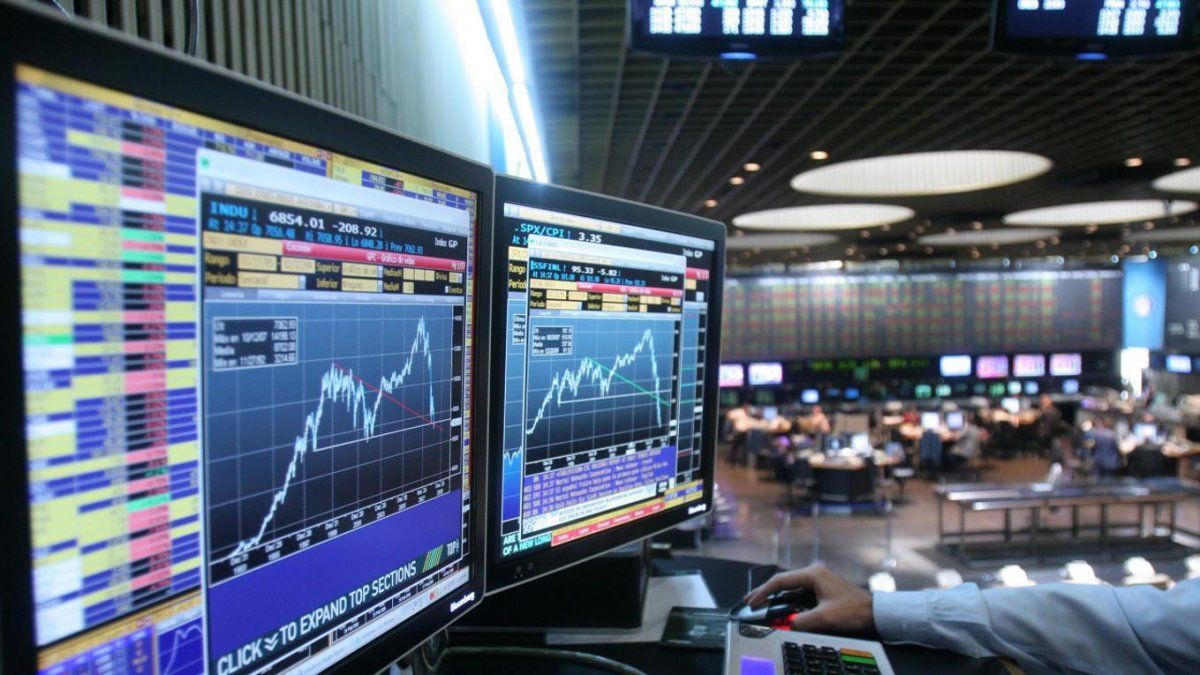But as if that were not enough, A lower-than-expected economic growth outlook in the US also weighed on the confidence of the markets, after the setback suffered by President Joe Biden’s investment package of 1.75 trillion dollars.
Against this backdrop, the S&P Merval leading index of Argentine Stock Exchanges and Markets It fell 1.6% to 81,908.15 units as a provisional closure, led by sales in items such as energy.
The most salient losses of the day were registered by the shares of Ternium (-4.5%); Transportadora de Gas del Sur (-3.1%); and Aluar (-2.9%). On the other hand, Cablevisión’s assets rose (+ 2.3%); Transportadora de Gas del Sur (+ 1.2%); and Grupo Financiero Valores (+ 1%).
In New York, the ADRs of Argentine companies closed with the majority of decreases, in a day in which IRSA led that lot with a 4.5% decline. In addition, Edenor shares fell sharply (-3.8%); and Transportadora de Gas del Sur (-3.3%). Among the few increases of the day, Despegar appeared (-1.9%); Pampa Energía (-1.4%); and BBVA (-1.2%).
It happened on a day in which the price of oil plummeted 4%, Given the increase in cases of the Omicron variant of the coronavirus in Europe and the US, it fueled fear among investors that new restrictions to combat its spread could reduce demand for fuel.
Investors are closely following the government’s slow negotiations to restructure some $ 45 billion in debt with the IMF, after it Last Friday, the Chamber of Deputies rejected the Budget 2022 bill, an important point in the discussions that the country is carrying out with the IMF.
“The rejection (of the budget) by deputies may imply a counterproductive turn in the face of the IMF agreement. Regarding rates, the macroeconomic reasons for the increase include greater incentives to advance exports for the agro-export complex and higher real interest rates for deposits in the financial system “, remarked the consulting firm Delphos Investment.
“The impossibility of turning the 2022 Budget into law represents a setback in the negotiations with the IMF, since Argentina would be giving a very poor political image”said consulting firm ACM. “We will have to wait until January 10, when contacts with the IMF will surely be resumed, to evaluate the effect in the framework of negotiations with it”added.
“We understand that the complications that the lack of political consensus can cause have not yet been reflected in the markets,” said VatNet Research and estimated that “the consequences could consist of aggravating the discouragement and therefore the bearish outlook.”
For its part, Wall Street’s major indices plummeted between 1.1% and 1.3%, pressured by more Omicron cases and the blow to Biden’s mega economic project. “Democratic Senator Manchin rejected the $ 2 trillion spending plan and complicates Biden’s economic agenda. Your vote is key to getting 50 votes in the Upper House and passing the bill with Vice President Kamala Harris running out. The delay. in its approval together with the lower monetary assistance next year and the continuous increase in cases weighs on the economic outlook, “they commented from PPI. For now, Goldman Sachs now estimates 2% growth for the first quarter of 2022 (vs. 3% previously).
In the region, Latin American markets fell sharply due to increased risk aversion due to the accelerated contagion of the Omicron variant of the coronavirus. Countries in Europe announced restrictions or said they agreed with possible measures to contain the advance of the variant on the continent.
In Brazil, the benchmark Bovespa lost 2% 105,018.65 points. Meanwhile, the real fell 1.1% to 5,745 units per dollar for sale, its lowest price since March 30.
In Chile, while, the assets collapsed after the resounding victory of the leftist Gabriel Boric in the presidential elections. The elections in the southern country were the most polarized of the world’s largest copper producer in three decades, since the fall of the military dictatorship, but finally the legislator prevailed with 55.87% of the votes to the ultra-conservative José Antonio Kast, who achieved 44.13%.
The Chilean peso fell 4% to 874.50 / 874.80 units per dollar, at its all-time low. Meanwhile, the leading index of the local stock market closed with a it fell from 6.2% to 4,088.26 points, to a floor since October 22 of this year.
“Among the guidelines of the Boric program that most concern investors are the increase in the tax burden, the increase in social spending and the reform of the pension system”, G Markets said in a note.
In fixed income, sovereign bonds in dollars fell to more than 1%, moderating the strong initial drops towards the end. Bonar 2041 led the losses (-1.1%), followed by Bonar 2025 (-1%). In this way, the weighted average price of the bonds fell to US $ 33.76, while the average rate rose again to 19.22%. Despite the heavy hit, sovereign bonds still bounce 10% from the post-restructuring low.
Consequently, the Country Risk, prepared by the JP Morgan bank, it rose 1.8% to 1,748 points.
For their part, dollar-linked sovereigns fell 0.2%, both TV22 and TV23, while Q2V2 showed some purchase orders after the losses of last week.
Finally, bonds in pesos with CER adjustment had another day with demand and rose 0.5% on average along the curve, with the exception of TX22 which, with good volume, fell 0.3%.
Source From: Ambito
David William is a talented author who has made a name for himself in the world of writing. He is a professional author who writes on a wide range of topics, from general interest to opinion news. David is currently working as a writer at 24 hours worlds where he brings his unique perspective and in-depth research to his articles, making them both informative and engaging.




